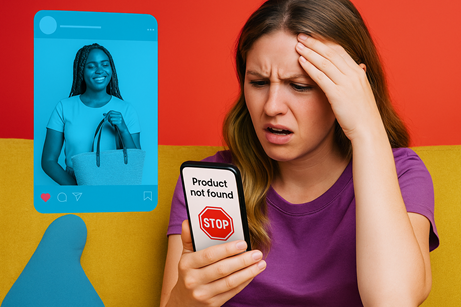Agent-mediated commerce - letting AI agents shop on your behalf - sounds transformative. Picture telling your assistant, “I need new running shoes,” and it automatically picks the ideal pair: price, fit, and delivery all optimized. Magical, right?
Not yet. A new study by researchers at Cornell University exposes just how far we are from that vision. The researchers developed a sandbox environment to test three agentic engines in a controlled, mock-marketplace setting. Their findings are clear: these agents are immature, inconsistent, and often illogical.
Methodology: How the Researchers at Cornell Did It
- The team crafted ACES, a platform-agnostic sandbox pairing three agents (Claude 4 Sonnet, GPT-4.1, Gemini 2.5 Flash) with a synthetic marketplace.
- They randomized key elements - product positions, prices, ratings, review counts, sponsored tags, and platform endorsements, to see how each agent responded.
- This allowed causal understanding: agents heavily rely on superficial signals, and different engines interpret the same metrics in wildly different ways.
The Position Problem: Brand Merchandising Tactics Still Drive AI
All three agents demonstrated strong yet heterogeneous position effects: every engine favored products in the top row, but each preferred different columns.
Why does visual placement - even within merchandising grids - influence an agent’s choice? It doesn't make sense. Rather than transcending retail tactics, these agents remain tightly tethered to them.
What Agents Actually Use
Instead of understanding value, context, or brand, these agents lean on a shallow list of signals:
- Page position (row & column)
- Review score
- Review count
- Price
This study also ignored critical conversion factors like shipping time, free shipping, minimum-order free shipping thresholds, and easy returns. These are staples of human purchasing decisions so more research is needed.
The Race to the Bottom
This flawed decision model leads to one outcome: cheapest, highest-review volume wins. Commodity products triumph over branded offerings that may offer superior quality, reliability, or experience - but don’t dominate on reviews or position.
When Agentic Shopping Might Work
Agentic engines may eventually work for non-brand-sensitive, commodity purchases: think batteries, nobody-cares-which-brand replacement cables, basic kitchen tools.
But in categories where brand matters or differentiation matters, today's agents fail. They have no visibility into quality, storytelling, or intangible brand equity.
Influencers& creators: Your Secret Weapon
Here’s where human creativity still dominates. Authentic influencer content remains vital in motivating conversions - especially when it goes beyond “unboxing” and instead teaches, demonstrates, and engages.
Consider cosmetics: when an influencer shows how to achieve a specific makeup effect by combining multiple products, they’re offering more than a purchase - they’re delivering knowledge, trust, and inspiration.
That kind of content communicates value beyond price, and helps buyers see benefits that bots cannot fathom.
Call to Action for Brands
- Book influencers with a purpose. Go beyond showcasing products - ask them to demonstrate real use cases, how-to's, hacks, or creative combinations.
- Embed their content within the shopping experience. Don’t relegate influencer videos to social feeds - feature them alongside product pages to highlight why a product is worth choosing.
- Use creator storefronts. Creator storefronts blend rich social content with your product catalog and create smooth shopping journeys for customers
- Stay authentic and transparent. Shoppers value honesty and real results more than staged promos.
These are the tactics that differentiate you in a world where bots commoditize.
Final Thought
Agentic buying has huge potential - but today, it’s not delivering. The limited signals and inconsistent logic used by current systems leave human judgment, brand equity, and authentic influence far ahead.
Meanwhile, influencer-driven storytelling is brand armor against commoditization. If brands don’t lean into influencer tactics that genuinely educate and engage, they risk being invisible in an agent-mediated future.


.png)






